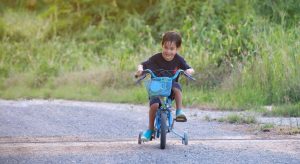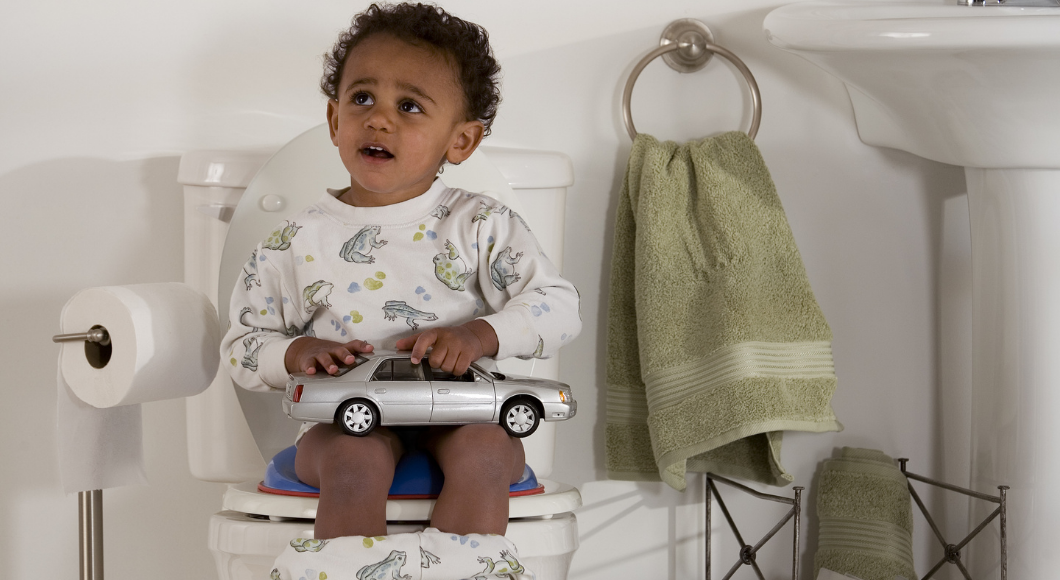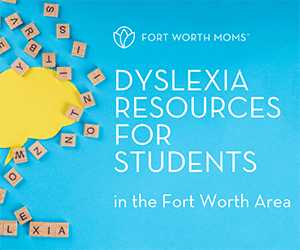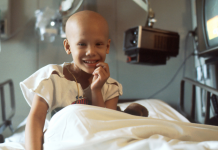There are some early childhood milestones that most of us remember and celebrate with our children: First words, first steps, first solid foods. And then there are some childhood achievements that pass by without a celebration. This may be because the achievement isn’t typically on our radar as a “milestone,” or because it is something most children do instinctually without it being a celebrated life event. It’s also easy to miss developmental delays.

If your child seems behind in reaching common milestones, he or she is not alone. About one in six children in the United States have developmental disabilities or delays. The most common diagnoses that cause developmental delays are intellectual disabilities, cerebral palsy, and autism. That means that about 17 percent of children may struggle to meet common developmental milestones.
>> RELATED READ :: What the Hell is Normal? Keeping Developmental Challenges in Perspective <<
A milestone is still an achievement, even when it happens late.
My brother sent me a video of my nephew riding his bike. He was not even four years old, and he took his first spin around the cul de sac without training wheels. What an amazing achievement! We are all so proud of him.
My son Henry is eight, and he still relies on his training wheels. Though most children his age may have already mastered riding a bike, Henry is autistic, so some developmental tasks take a little longer. Though his delays are mostly social, emotional, and interpersonal, autism is a neurological disorder, so his motor development can also be affected.

Though his bike-riding skills differ, we are not any less proud of Henry for not having conquered this childhood achievement yet. We are proud when he decides to get on his bike at all, as sometimes that is achievement enough. Perhaps one day we’ll remove his training wheels, too, but we are not stressed about the ifs or whens.
If your child is developmentally delayed, he or she is on his or her own milestone timeline, and should not be compared to other children the same age, or even other children with the same diagnosis. Ignore the medical standard and celebrate your child’s achievements for what they are — large or small. He or she may take longer to get there, but that does not make his or her personal achievement any less special.
Let’s talk about one big milestone that is a struggle for most children: potty training.
The pediatrician may tell you that most children should be fully potty-trained by the time they are two to three years of age. Many of your mom friends and family may also echo this standard. But some children just take longer, especially if they have developmental delays.
>> LISTEN :: Potty Training & Pelvic Floor Health :: Momfessions Podcast :: Episode 69 <<
You should follow the advice of the pediatrician and developmental specialists, but other than that, do not let the opinions of others influence your potty-training goals for your child. Their standard is not standard for your child.
 Do not get discouraged if your child is four, five, 10, or older and has still not conquered potty-training. He or she will achieve this goal in his or her own time, with your help of course. My son is mostly there, but even at age eight, there are some aspects of successfully using the restroom that are still a challenge for him.
Do not get discouraged if your child is four, five, 10, or older and has still not conquered potty-training. He or she will achieve this goal in his or her own time, with your help of course. My son is mostly there, but even at age eight, there are some aspects of successfully using the restroom that are still a challenge for him.
I don’t want to exclude from the conversation the reality that some children’s diagnoses and delays are more severe, and they may not ever be able to use the restroom without help. I’d encourage those families to celebrate the hygiene achievements that they can manage, like letting you know when they have to relieve themselves, or alerting you when they already have. These milestones matter, too.
>> RECOMMENDED RESOURCE :: Activities for Kids with Differences and Disabilities in the Fort Worth Area <<
Don’t forget to celebrate untraditional milestones. Something that seems insignificant to others can be a big deal to you.
Untraditional milestones are meaningful to a select few of us. Sometimes milestones are personal to each child, each parent, each family. Some of us celebrate the first time our children nod their head yes and no. Or when they acknowledge and play with toys appropriately. Or when they keep their shoes on for a full day at school.
I remember the first time my son verbally expressed an emotion. He was four, and we were role-playing Spongebob Squarepants in the back yard; he was Spongebob and I was Patrick. When it was time to go inside, he wanted to stay outside and keep playing.
So, I picked him up and headed for the door. My son exclaimed, “Patrick, I’m frustrated!” Whoa, what!? Did he just . . . tell me how he is feeling? I put him down immediately and we talked about his frustration. It didn’t matter that we discussed it in our Spongebob roles; he was communicating in a way he never had before. Milestone achieved.
Which milestones has your child recently achieved? Celebrating these milestones regardless of developmental delays, expectations, and standards is something we can all do together as a community to make every child feel accomplished and successful.














Love this article Lauren and so proud of our sweet nephew!